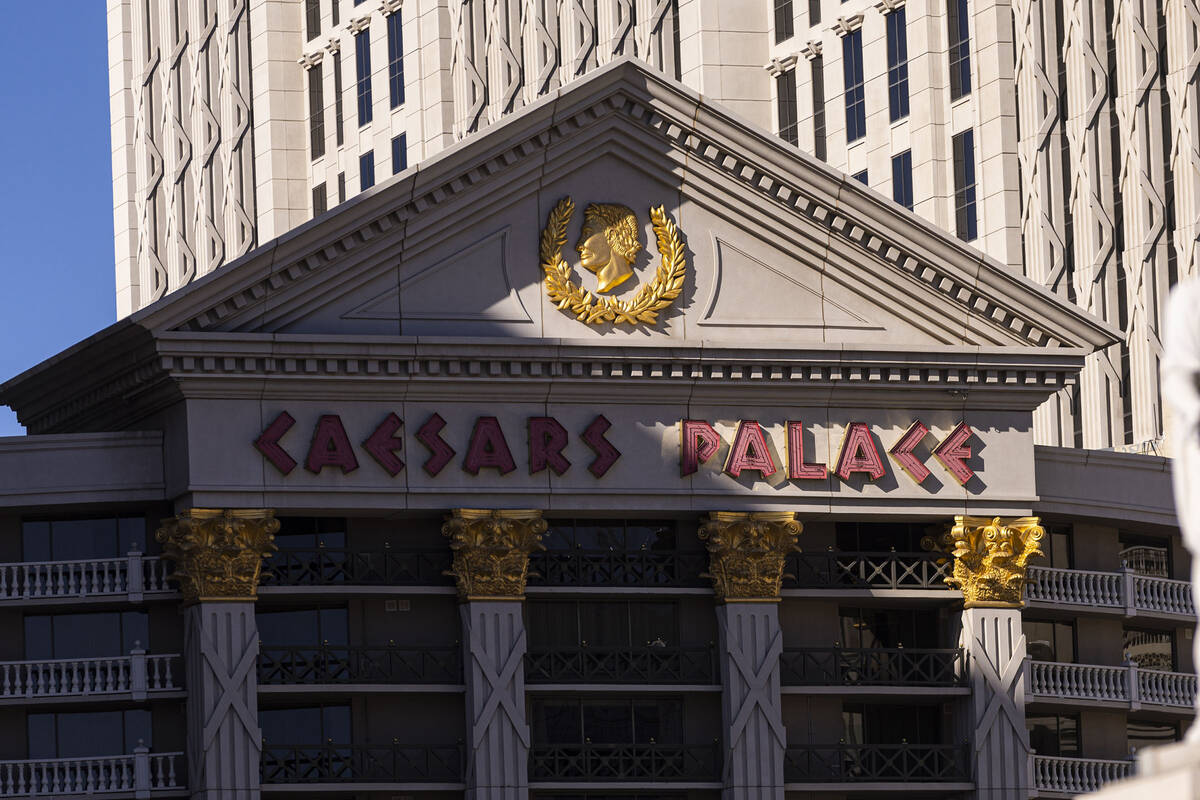Caesars: Super Bowl betting glitch in ‘rearview mirror’ as March approaches
Caesars Entertainment Inc. said it has moved past the meltdown of its William Hill sportsbook app, which crashed during the Super Bowl and left bettors unable to wager on the game.
During its fourth quarter earnings call Tuesday, analysts asked about the technical glitch that brought down the Caesars-owned sportsbook app.
CEO Tom Reeg said old technology was the issue and that it was “in the rearview mirror.” The company intends to upgrade the app’s platform before the next football season.
Despite the glitch from earlier this month, the company expects 2023 to provide strong results based on last year’s numbers.
Executives with the Reno-based casino operator of several Strip properties said strong occupancy and higher average daily room rates are driving record hotel and food and beverage results — reminiscent of pre-pandemic levels.
“It’s hard to express how strong Vegas is right now,” Reeg said.
Occupancy rates in the fourth quarter hit 95.5 percent, reaching 2019 levels for the first time, Senior Vice President of Finance Brian Agnew said. In Las Vegas, group demand increased in the fourth quarter, representing 16 percent of occupied room nights.
Caesars leadership highlighted group and convention demand as a segment with plenty to look forward to this year. January’s occupancy in Vegas was up 1,700 basis points compared to January 2022, when the omicron variant of COVID-19 was high, Reeg said.
Group room rates are “high-single digits” above 2019 levels in forward bookings so far, Reeg said.
“As we look at forward bookings in Vegas, they’re strong and getting stronger,” he said. “March sets up to be one of the best months that we’ve ever had in Las Vegas.”
For the quarter that ended Dec. 31, Caesars reported a net loss of $148 million, or 70 cents per share, on revenue of $2.8 billion. During the same period last year, it reported a net loss of $434 million on $2.6 billion in net revenue.
For 2022, the company reported a net loss of $899 million on revenue of $10.8 billion. That’s compared to a net loss of $1.02 billion on about $9.6 billion in revenue in 2021.
Las Vegas continued to be the company’s strongest performing segment. The region reported a net income of $295 million on $1.15 billion of revenue in the fourth quarter, compared to a net income of $252 million on $1.04 billion for the same period a year earlier.
On the digital side
Officials said they are focused on developing Caesars Digital, its sportsbook and iCasino verticals. It nearly broke even after multiple quarters of net losses, which Reeg attributed in part to the company’s high-profile loss to Houston furniture store owner Jim “Mattress Mack” McIngvale during the World Series.
The Caesars Sportsbook added a combination of retail and online wagering options in Puerto Rico, Kansas and Maryland in the fourth quarter. It also launched online and retail sportsbetting in Ohio Jan. 1. Its presence is now in 29 North American jurisdictions, with 21 offering mobile wagering. The book is expected to become operational in Massachusetts next month.
Caesars also plans to release a standalone iCasino app in available markets during the second half of 2023. Currently, iCasino games can be played through the sportsbook app.
Caesars shares, traded on the Nasdaq, closed Tuesday at $51.22, down 2.99 percent. Shares fell another 1.6 percent in after hours trading to $50.40 a share.
McKenna Ross is a corps member with Report for America, a national service program that places journalists into local newsrooms. Contact her at mross@reviewjournal.com. Follow @mckenna_ross_ on Twitter.
Caesars Entertainment
Fourth-quarter revenue and earnings for Reno-based Caesars Entertainment Inc., operators of Caesars Palace, Flamingo, Harrah's and The Linq Hotel, among other Strip properties. (Nasdaq: CZR)
■ Revenue
2022: $2.82 billion
2021: $2.59 billion
Change: ▲8.88%
■ Net income/(loss)
2022: ($148 million)
2021: ($434 million)
■ Earnings/(Loss) per share
2022: ($0.70)
2021: ($2.03)






















